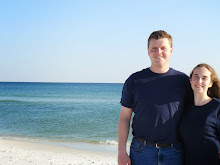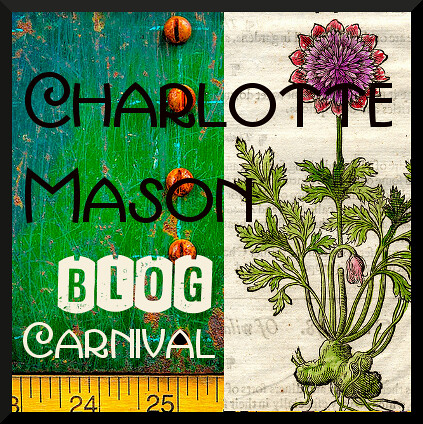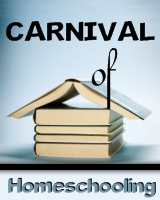1) age 13, 8th grade
2) age 11, 6th grade
3) age 9, 4th grade
4) age 6, 1st grade
5) age 4, Preschool
6) age 23 months, and he's still heavily involved in Project Destruction (see last year's post for elaboration on this). :)
Some of what I have planned for the coming year is simply continuing along in things already mentioned in this post from last year. Bible, Bible Memory, Grammar, Phonics, Typing, Copywork -- we will still be doing all those pretty much the same, except people are at different places in some of them than they were.
In addition to these, I added in Spelling Power for spelling last year. It went pretty well, and I plan to continue it with at least my spelling-challenged child this year. I also want to add some work on some other mechanics of writing here and there for my older ones, who have recently begun doing more written narrations (they still narrate orally as well). I'm usually pretty pleased with the content of their writing. I really believe that reading is one of the greatest helps for writing skills, because they've had little instruction in mechanics, but have picked up a great deal on their own. Still, there are some things they could use some targeted instruction on. We may use Jensen's Punctuation, and various other materials as needed.

For much of the remainder of their studies, I'm using Ambleside Online, and will have students in Years 1, 4, 6 and 8. I don't use everything from every year -- sometimes I substitute, sometimes just omit. Ambleside Online covers many subject areas. If you take a look at the lists, you can see them broken down into categories. I emphasize especially the History from here. Literature I draw from here too (both required and free reading choices), but am more likely to sub/omit. Some other things on the lists are less of a priority for us and we work them in to varying degrees. I have a few things I'm still considering and working out whether/how we can work them in this year. We'll see! Below are a couple of the selections from Year 8 I'm excited about. I've finished A Man For All Seasons, and am about a third of the way through The Voyage of the Armada. I'm looking forward to discussing both with my Year 8 student. :)


We use Apologia for Science. My two oldest will be finishing up General Science and then heading into Physical Science. We will also still be covering (including my Year 4 student, and the younger ones to some degree) the elementary Anatomy from Apologia at a snail's pace (or slower -- amoeba's?), and some of Ambleside's other science selections if time permits. The children also do nature study -- some assigned and some spontaneous -- and they have other science-related interests too, being animal lovers, gardeners, and just generally curious about the world around them.

For Math we are continuing in Math-U-See at this point. This little schoolhouse will have two in elementary levels (Alpha and Delta) along with pre-Algebra and Geometry students. Yes, this will be a little intense.
For the younger ones, things generally go better when I plan to keep them productively occupied while I work with the older ones. So I invest in tools to help with that, such as games and other toys, and art/craft supplies. Recently I got a few more games my 4 and 6 year old can play without much if any help, if needed: Hi, Ho! Cherry-O!, Count Your Chickens, Richard Scarry's Busytown Eye Found It, and Sherlock. They've been a success. Hi, Ho! Cherry-O! and Sherlock are probably the most popular overall, and the latter is my favorite. It's a very simple game so that younger ones can play it (no reading required), but it's a memory game that can be surprisingly challenging even for adults (especially if you happen to be distracted by little ones... or at least that's my excuse as to why I can't remember the simplest things for two minutes!).


My 4 and 6 year olds also enjoy workbooks (varied types, teaching basic skills) and other learning activities, some of which they can do independently (in theory, ha), and some of which I (or an older sibling) help them with. They also spend time "just playing," along with my almost-2 year old. That littlest one is also especially good at adding excitement to the school day. :)
We also have music and art appreciation and opportunities for other learning in these areas as well. The children are also physically active, doing things like bike riding and skating. They learn various life skills and character traits through chores, crafts or other projects, church activities, and other experiences. We believe that life is full of learning opportunities, so we don't always divide "school" from the rest of life. In fact, some of the most valuable learning around here may not look much like traditional school at all.

I'm looking forward to a good and productive school year. What curriculum do you plan to use this year? Leave me a comment, and link up at iHomeschool Network's Not Back-to-School Blog Hop!

This post is also a part of the Carnival of Homeschooling.
Note: This post contains affiliate links. 










Looks good!
ReplyDeleteFrustrating, my comment didn't save.
ReplyDeleteI basically said I enjoyed reading this and think I might have to do the same. It looks so nice all laid out and organized!
I'm also thinking A and Tyrell are in the same class. :) Oh, and I'm having a difficult time discerning--the last picture is Z, not B, right?
Thanks! Ha, yes, they may be in the same class. :) And yes, that's Z in the last photo.
DeleteI used the spelling power book with my kids this Spring and really liked it.
ReplyDeleteI like it, too. It's pretty straightforward and doesn't feel like busywork, which is one of the things I didn't like about spelling when I was in school.
DeleteWe use Apologia science too. And we use SpellingCity for spelling. But what I wanted to share with you is that we create spelling lists using our Apologia science vocabulary. I've noticed this has helped my kids' comprehension. I know this because I've seen a difference in their test scores. They use the list to play games like Match It Sentences and Match It Definitions. This is a free site (unless you purchase the premium membership, which I think costs 30 dollars for the year for up to 5 students). Here is a link to their science vocabulary words (but you can create your own). http://www.spellingcity.com/science-vocabulary.html
ReplyDeleteThanks for the tip. I'll have to check that site out. I have added some of the vocab they had trouble spelling to their lists of review words in Spelling Power at times.
Delete